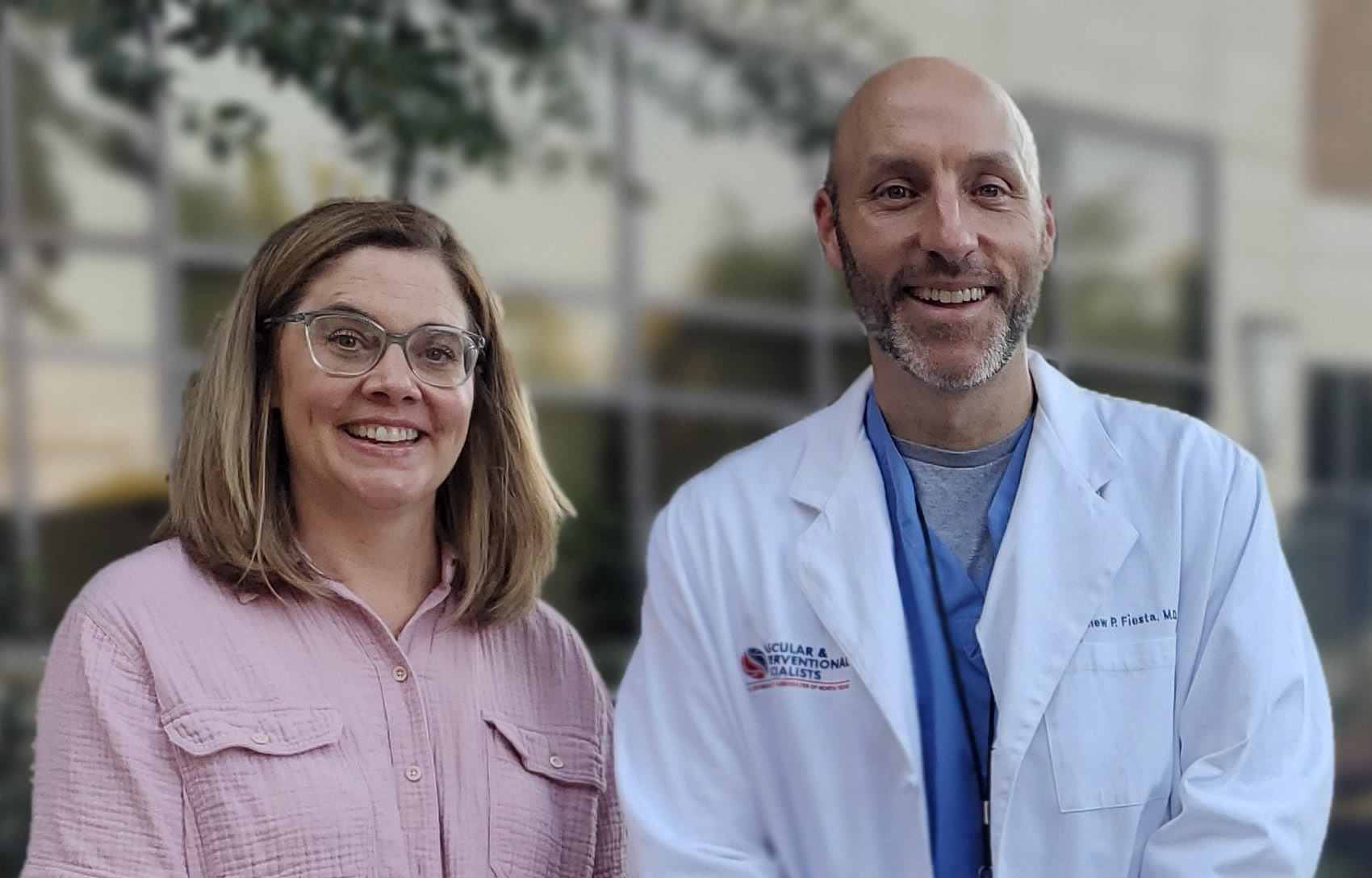FORT WORTH, Texas — Tiffany Rubenkoenig hummed along as guitar strumming, the call of the drums and the twangy notes of a harmonica filled the vehicle as she and others headed to the Garth Brooks concert. Suddenly, she felt extremely dizzy and hot — and it wasn’t from the sweltering Texas summer heat. She’d soon realize her life was in jeopardy, but thanks to individuals at two Texas Health Resources facilities, the 42-year-old mother of three is a grateful survivor.
Ryan Rubenkoenig, Tiffany’s husband, vividly remembers that summer evening. “We had no idea, but that’s when our nightmare began.”
Knowing the signs, taking immediate action
Encouraging friends to attend the concert without them, Ryan found Tiffany slumped over in her seat and as she attempted to speak, her words slurred together, and part of her face began to droop. Immediately, he knew she was having a stroke.
After calling 911 and driving to Texas Health Arlington Memorial, several exams confirmed their fears. Less than 20 minutes from the onset of her stroke symptoms, Rubenkoenig was given clot-busting medication to break up the clot in her brain.
Feeling better, the Rubenkoenigs were looking forward to her hospital discharge, even solidifying their upcoming trip to California. “Then, my head started hurting, and I told Ryan to get the doctor,” she said.
Receiving specialized stroke care
Minutes later, Rubenkoenig stopped breathing, going into cardiac arrest — twice. To survive, she needed specialized care at a comprehensive stroke center. Rubenkoenig was taken via helicopter to Texas Health Harris Methodist Hospital Fort Worth — the only advanced comprehensive stroke center in Tarrant County certified by The Joint Commission. In fact, Texas Health Fort Worth cares for the highest number of stroke patients* in North Texas.
Matthew Fiesta, M.D., an interventional neuroradiologist on the Texas Health Fort Worth medical staff, was preparing for her arrival.
Fiesta, who serves as co-medical director of the hospital’s stroke program, received an alert on his phone, along with Rubenkoenig’s vital signs and CT scan from Texas Health Arlington Memorial.
Fiesta performed an angiogram and the brain imaging showed that instead of two arteries supplying blood and oxygen to her brainstem, Rubenkoenig only had one.
“Unfortunately, Mrs. Rubenkoenig somehow injured, or dissected her one and only artery,” Fiesta said. “It caused major blockage and lead to her massive stroke.”
Fiesta began antiplatelet treatment to eliminate future blockages in Rubenkoenig’s vertebral artery and to help it heal.
Recovering from stroke, thriving after therapy
Rubenkoenig lost the ability to speak and move on her own, spending nearly three weeks in Texas Health Fort Worth. Her patient journey involved care across the Metroplex for several months, eventually leading her back to Texas Health Fort Worth — this time for vision therapy.
“Completing reading and mobility tasks, along with driving simulations, we help neurological patients increase their visual processing speed, depth perception, and their hand-to-eye coordination,” said Robin Milroy, an occupational therapist at Texas Health Fort Worth.
“The end goal is to get individuals back to enjoying life independently, whether they’re at school, work, or simply participating in leisure activities with loved ones.”
Rubenkoenig is back to enjoying her independence – being a mom to three boys, walking her dog, and even starting a blog, which she uses to pray for patients with strokes and helping connect people to resources.
“Her determination, her fight, her faith — Tiffany never gave up,” Ryan said. “Not only that, the level of care we received couldn’t have been any better than it was. God was looking over us.”
Follow this link to learn more about Texas Health’s specialized services.
Related News
About Texas Health Resources
Texas Health Resources is a faith-based, nonprofit health system that cares for more patients in North Texas than any other provider. With a service area that consists of 16 counties and more than 8 million people, the system is committed to providing quality, coordinated care through its Texas Health Physicians Group and 29 hospital locations under the banners of Texas Health Presbyterian, Texas Health Arlington Memorial, Texas Health Harris Methodist and Texas Health Huguley. Texas Health access points and services, ranging from acute-care hospitals and trauma centers to outpatient facilities and home health and preventive services, provide the full continuum of care for all stages of life. The system has more than 4,400 licensed hospital beds, 6,400 physicians with active staff privileges and nearly 29,000 employees. For more information about Texas Health, call 1-877-THR-WELL, or visit www.TexasHealth.org.

